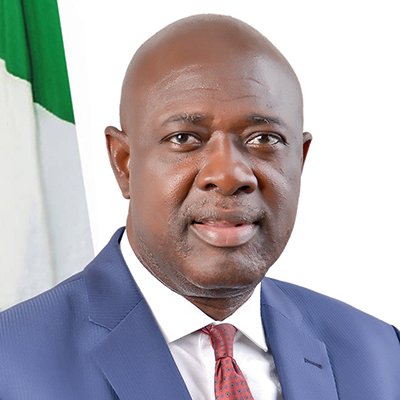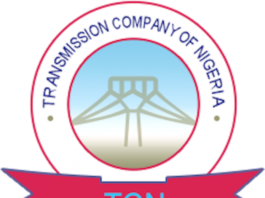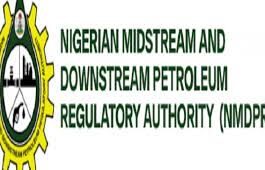Over 50 expired oil licences remain revoked – FG
The Minister of Petroleum Resources (Oil), Heineken Lokpobiri, has refused to approve the extension of over 50 expired oil licences currently on his table. Lokpobiri stated that over 60 licences were awarded in a marginal bid round that took place a few years ago. However, he regretted that fewer than six of them have invested in the assets since they were given to them.
Speaking recently at the PENGASSAN energy and labour summit in Abuja, the oil minister said the licences are currently on his table, seeking extensions.
“We need to take steps that will increase oil volumes. One of the ways we can increase the volume is for those licence holders to produce. You will agree with me that there was a marginal bid round a few years ago where over 60 people got licences. If each of them produces even 2,000 barrels per day, that is 120,000 bpd.
“But today, the record available to me clearly shows that fewer than six of them have been able to make the investments needed up to production. Our government has a job to do. The PIA said it is either you drill or you drop. Why should we give licences to those who willingly applied for those licences but haven’t shown capacity to invest in them, he asked.
Lokpobiri said the country needs every available well to produce daily to meet both local and international demands.
According to him, renewing the licences is like impoverishing the holders, who, he said, go about wasting scarce resources to attend conferences. The former senator said he would rather decline the request for extensions so the holders would find something else to do.
“We need every available well to be brought to production as part of our deliberate steps towards increasing production. The message I want to drop here is that they already have licences on my table seeking an extension. And I asked a question, ‘Why should I extend the licences of those people who haven’t shown capacity? Am I not suffering them more?’
“The longer I give you the opportunity to wear the best suit in the world, going round all conferences, wasting the money you don’t even have, the more harm I’m doing you. So, it is better for me to decline that extension so that you can find something else to do. Let’s give those licences to those who have proven capacity financially and technically, as part of my efforts towards increasing production to meet our domestic demand,” he emphasised.
Lokpobiri recalled how he usually intervenes between two oil producers and refiners as far as the implementation of the domestic crude supply obligation is concerned. “I’m always intervening when refiners seek to implement the PIA provision that says we have a domestic crude oil supply obligation. I’m always an arbiter; I always bring parties together. The same law said it should be on the basis of ‘willing buyer, willing seller’.
“While the refiners need the crude, the producers want to sell the crude at the best price. The refiners said they must sell it at a lower price. I’m always dealing with it. Sometimes the producers will say they have pre-existing obligations; before they raised finances to invest, they’d committed to the barrels.
“But I’ve always told them that the only solution is for us to increase the volumes. Increase the volumes, and then you’ll be able to meet both your local and international obligations. That’s why I’m saying that licence holders have obligations, and the government has an obligation. The government has created the best environment through the reforms and executive orders, he said.
The PUNCH reports that over 40 oil licences expired in June this year, according to a report by the Nigerian Upstream Petroleum Regulatory Commission. The licences, granted to different companies on June 28, 2022, include petroleum prospecting licences granted to oil companies after the completion of the 2020 marginal fields bid round.
The NUPRC said the law provides for an optional extension of three or five years; however, the extension will depend on the company’s performance. It was reported that the 2020 marginal bid round had successful bidders for the 57 marginal oil fields put up for lease by the government at that time.
An energy expert, Professor Emeritus Wumi Iledare, said the renewal of the licences is only likely if meaningful exploration or development activities have been undertaken. According to Iledare, where such activities are absent, renewal becomes increasingly unlikely. A few weeks before the expiration of the licences, the commission said in a statement that several licensees had formally applied for the conversion of their Petroleum Prospecting Licences to Petroleum Mining Leases.
The Chief Executive of NUPRC, Gbenga Komolafe, said the 40 PPLs were at different stages of exploration, appraisal, and pre-development, saying their applications were under review. He stated that each stage had different regulatory requirements and timelines.
The commission clarified that the 40 Petroleum Prospecting Licences referenced are at different stages of exploration, appraisal and pre-development. Each stage has distinct regulatory requirements and timelines. “Several licensees have formally applied to convert their PPLs into Petroleum Mining Leases, as required by the Petroleum Industry Act 2021. These applications are currently under review,” he noted.
The statement explained that many of the operators have already fulfilled their minimum work programme obligations under Section 78 of the PIA, qualifying them for extensions. Later, the NUPRC wrote to the holders of over 40 Petroleum Prospecting Licences, informing them of their PPL tenure expiration and the conditions for extension.
According to the NUPRC, any holder who wished to apply for an extension had to pay $5,000 as an application fee. In the letter titled ‘Notification of PPL Tenure Expiration and Conditions for Extension’, the Chief Executive of the NUPRC, Gbenga Komolafe, said, “Further to the award of a Petroleum Prospecting License to your company during the 2020 Marginal Field Bid Round, a review of our records indicates that the PPL will expire on 27th June 2025, which is in line with the terms of award of the licence.”
In accordance with the provisions of Section 77 of the Petroleum Industry Act 2021 and 2022 Regulation on Extension of Licence, Komolafe said the letter served as a formal reminder that the PPL holders were required to either apply for an optional additional three-year exploration period based on fulfilment of the Minimum Work Programme/Minimum Financial Commitment attached to the licence at the time of the award and other obligations.
The regulator also sought to see the evidence of incurring the minimum financial commitment. Also, there must be “evidence of submission of a work performance guarantee for the initial three-year exploration period, issued by a commercial bank duly licensed by the Central Bank of Nigeria with a minimum credit rating of ‘BBB’ issued by, at least, two rating agencies, one of which must be a rating agency incorporated in Nigeria and registered with the Securities and Exchange Commission.”
Meanwhile, Lokpobiri’s current refusal to approve the extension of the licences on his table reinforced his earlier warning to those who participated in the 2020 marginal bid round. “Out of those who benefited from the last marginal bid round, out of about 60, maybe only about three or four or five have started producing.
“Their licences will expire soon because they are for three years and renewable for another three years. But the condition is that you have a work plan; if you don’t follow your work plan, I also have the discretion to cancel it. If somebody has a marginal oil licence and doesn’t have the capacity to raise funding, you’re just impoverishing him.
“The ‘big boys’ are holding on to these licences as souvenirs; they are not doing anything about them. That is why we are farming them out. We will not allow any company to do that. Let’s start to do things differently,” he said last year.
=== PUNCH ===








